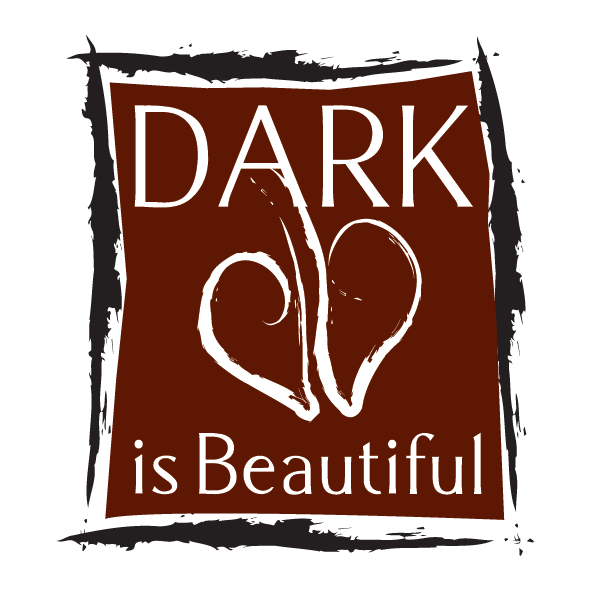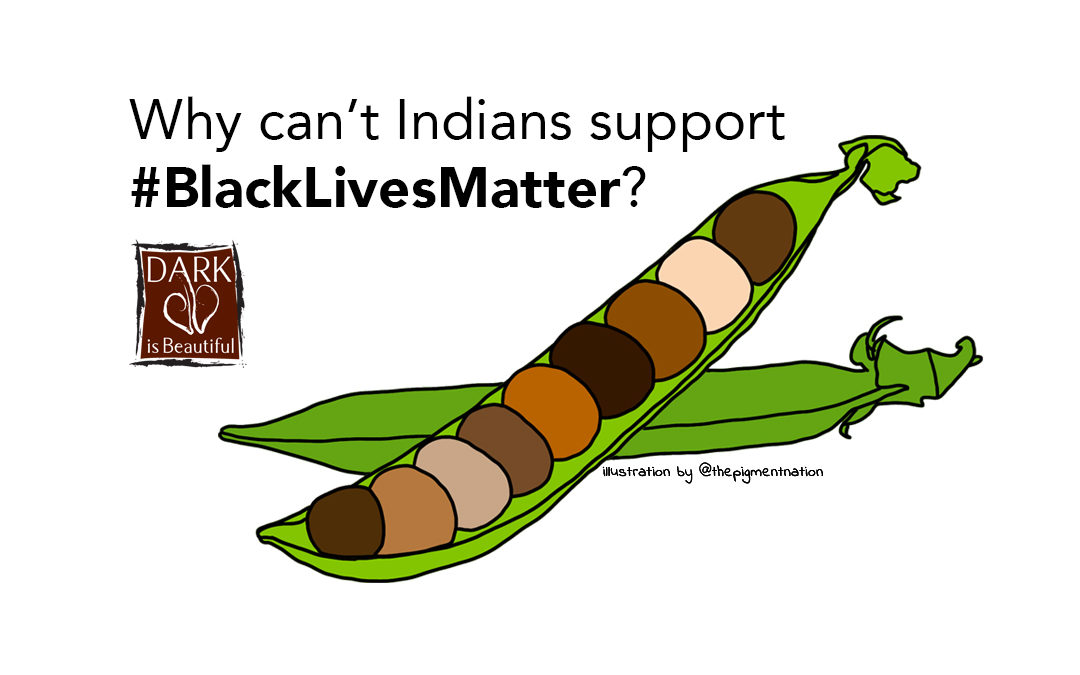Casteism and Racism: How they matter on a platform for Colourism.
Just think about the pandemic for a moment. Why are we all so keen on doing whatever is necessary to be safe from the virus? Clearly, because it affects all of us irrespective of caste, colour, creed, religion or race. It goes across borders and fences. No one can control the spread of this invisible enemy, at least for now. Nevertheless, its presence is so real today.
To me, this “pandemic of systemic discrimination’ should be given the same consideration. Often it is invisible, but it is very real. On the surface, it looks like racism was abolished and ideologically all of us prevail as equals. In the same way, we would like to believe that India is casteless. But nothing can be further from the truth.
The recent events in the US have birthed a lot of reaction around us here in India about how we Indians don’t qualify to speak up against racism in a different culture when we ourselves are engulfed by discriminatory attitudes. So, can we speak up against racism? Be it in the US or anywhere else?
I remember when the ‘Dark is Beautiful’ campaign was launched in 2009 and in the years following, we got a lot of media attention from over 18 different nations, from South-east Asia to Europe, Africa , Australia and the Americas. The focus was on India’s obsession with ‘fairness’ or skin whitening. While this is true, we do know that colourism is not just an Indian issue. It is a global issue just as much as racism is a global issue. Let me make this clear: India cannot claim to be any less racist and other nations cannot claim to be any less colourist. Therefore, we at the DISB campaign stand in solidarity with the Black Lives Matter campaign and other movements against systemic racism. We acknowledge that these movements reveal the hypocrisy in all of us.
The DISB campaign has consistently established that colourism is one of the by-products of racism. Could this also be true of casteism? What we see today in terms of caste-based violence is truly a reflection of a society in need of healing.
We are sick. We need to be healed as much as the rest of the world.
It is high-time we awaken ourselves to challenge systemic injustices based on caste which is very often threaded together with colourism.
But is India racist as well? It would be easier to deny that than to own up to the difficult and painful hidden truths in our history.
In her memoir “Coming Out As Dalit”, Yashica Dutt acknowledges that the British perpetuated casteism and racism in India. Then she expounds how “caste prejudice has been linked to darker skin shades since before the British arrived.” She then unequivocally establishes the relationship between casteism and colourism, “In modern India, caste and colour are deeply connected, with both being equated with notions of purity/cleanliness and impurity/pollution.”
The popular understanding is often that lower caste people are dark, poor, South Indian, Madrasi, maids, illiterate, and also evil or villainous. On the other hand, the popular understanding of upper caste people follows a trajectory of fair skin, purity, Aryan descent, North Indian, and heroic.
So, as Indians battling such toxic mindsets towards skin colour, do we as a campaign qualify to participate in movements that speak out against racism? Yes, we do and we should. Do we as Indians who recognize racism, casteism, and colourism as forms of systemic discrimination, oppression and injustice, qualify to speak out against it? Yes, we do and we owe it to ourselves to stand in solidarity with those in the frontlines.
Racism is toxic, inhuman and evil. But in showing our support, we should recognize our own nakedness. We stand exposed as much as anyone else. By doing so, let’s also wake up to what we have endorsed all along in our own backyard. Let’s clean our trash while we expose someone else’s dirt.
We all qualify to speak against racism. If we stay silent we have not challenged ourselves enough.
Movements like Black Lives Matter have exposed not just racism but other discriminatory attitudes. For this reason and more, we should embrace it. Black lives do matter – let every Indian support it!
We rise up against racism, casteism, and colourism. But what next?
Having established that we do qualify to speak up against it, we now have to consider if we are bold enough to apologise for our own blind behaviour? “I once was blind but now I see” are the words of the famous hymn “Amazing Grace” by John Newton. This should not be a one-time experience but one that we live out consciously every day. While we join the others in the slogan, ‘Black lives matter,’ let us simultaneously challenge our own forgotten and hidden toxic beliefs.
Looking back on our journey as a campaign I am humbled by what we have learned as a team. We did not have it all in place. We were not even aware at that point that colourism is a global issue. We have faced a lot of criticism for the name of the campaign itself. Why should only “Dark’ be called beautiful? We can never stress enough the importance of calling it so, because it is not about denying the celebration of all skin tones but to draw attention to the unjust effects of skin colour bias towards dark skin tones.
“Dark” is not just beautiful. “Dark” is smart. “Dark” is confident. ‘Dark” is capable. ‘Dark’ is equal in every way and deserves equal respect and dignity that is due to all human beings.
In some ways, the lockdown has exposed a lot of discriminatory attitudes that we often sweep under the carpet. How do we treat our house-helps? Are we ensuring their safety? How do we treat migrant workers? How do we treat people of other ethnicities? It’s high time we devoted serious thought to what each of us can challenge in our own lives and environments.
As the DISB team we are still on a journey. We don’t claim to have figured out solutions. But we are committed to learning more about such toxic beliefs. We know the mistreatment that people from African ethnicities face in our nation.
We invite conversations from those who face racism within our country. It may be painful to hear what we have been capable of, but we want to expose ourselves to that pain. We also want to hear the stories of those discriminated against based on caste.
This is a platform for such stories. And we will not shy away from them. From these stories, we can grow to be better individuals and a better society. From these stories, we can begin to change our prejudice.
I want to leave you with a powerful quote from Maya Angelou which could be our measuring stick to double-check how we treat others: “I’ve learned that people will forget what you said, people will forget what you did, but people will never forget how you made them feel.”




hiya all, I was just checkin out this blog and I really love the basis of the article, and have nothing to do, so if anyone would like to to have an engrossing discussion about it, please contact me on yahoo, my name is tim posali We love Google 🙂
The modern concepts on racism is relatively modern having roots that go back only to the 17th & 18th centuries. Before that people were noted only by where they came from. The 18th century was a time of increasing civil liberties but only for some; those leaders had to come up with a rationale why they could demand freedom while enslaving some people & taking the land & killing others. That solution was to define people based on skin colour & term this as race. Utter nonsense; perhaps it would make it easier to understand if we replaced the concept of race with the concept of breed. Lighter skin simply means more sun burns and being very fair (blue eyed blond Scottish background) I would be happy to be a less afflicted by UV! Skin colour is no more important than hair or eye colour & we are all the same race.
I love India, North, South, East and West, I have traveled them all. I love Indian people. I have had so many wonderful experiences traveling in India. Being a heterosexual male of Italian and Colombian heritage, I also love Indian women. I find them to be incredibly beautiful. I love dark skinned Indian women the most. Dark skin is incredibly gorgeous. I’m lucky. My wife is a beautiful “darker skinned” Caribbean woman of Bengali Indian, African and Jewish heritage. I applaud the work you guys are doing . Casteism and colorism are absurd and outdated notions that need to come to an end. I live in California which is so modern in the sense that people love people for who they are here. Not because of their color, creed or religion. Intermarriage here among people of different colors and ethnicities is the norm here. The work you are doing is incredibly valuable. You have my unbridled support. Dark is not only beautiful, dark is absolutely gorgeous!!!
Awesome article and very thought provoking..well done.
Thank you!